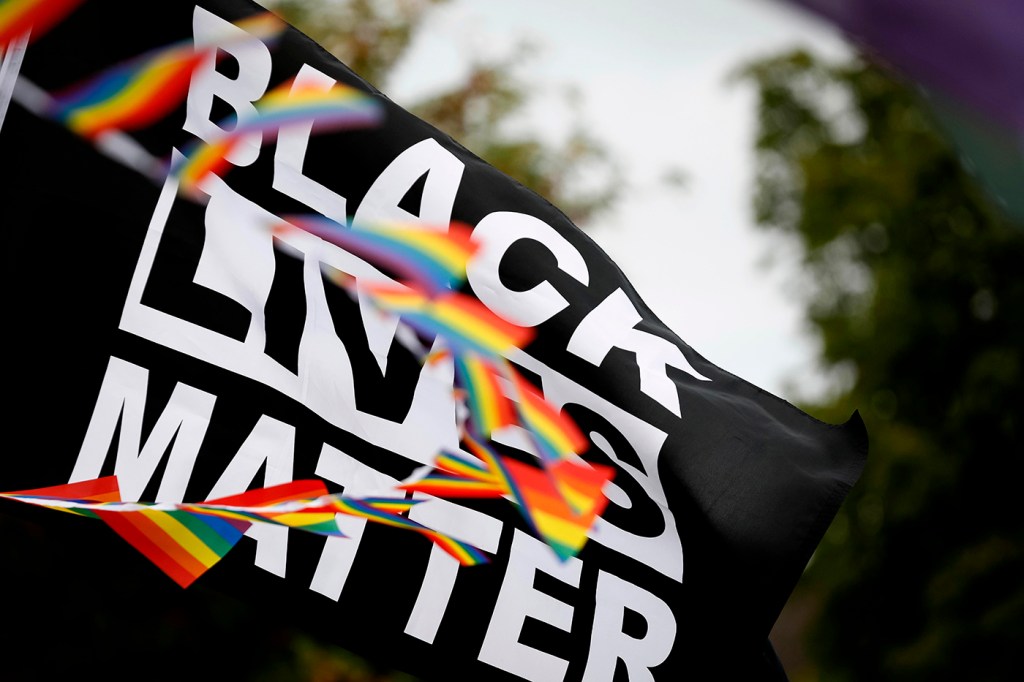The Myra Kraft Open Class Series Doesn’t Shy Away from Controversy

In a classroom setting that is available online to a universal audience, more than three dozen Northeastern students have taken on the polarizing issues of racism, anti-Semitism, and the rule of law in this age of misinformation and tumult.
It’s part of the ongoing Myra Kraft Open Classroom series that is focused on a provocative theme this semester: “Repairing a Divided America: Race, Hate Crimes, and Reconciliation.”
“We have addressed a broad range of controversial subjects,” says Ted Landsmark, distinguished professor of public policy and urban affairs and director of the Kitty and Michael Dukakis Center for Urban and Regional Policy. “We have created a safe space for discussion and we have welcomed opposing viewpoints because we think that in a truth-seeking academic environment like Northeastern, given the diversity of students and faculty on campus and the extent to which we engage with a wide range of communities adjacent to our various campuses, we have a responsibility to openly discuss subjects that may sometimes feel uncomfortable for the participants.”
Forty undergraduate and graduate students are enrolled in the course, offering a variety of perspectives from around the world. Northeastern students, faculty, and staff may register to attend the weekly two-hour lectures in-person at West Village F, Room 20. Additionally, the lectures are available via live-stream to online visitors; Landsmark says that some have been watching (and asking chat-room questions) from as far away as China, Jamaica, and Mexico.
The lecture topic on Wednesday at 6 p.m. EDT will be “Can universities and media bring us together?” It will feature Karl Reid, Northeastern’s senior vice provost and chief inclusion officer; Richard O’Bryant, director of the John D. O’Bryant African American Institute; and Régine Michelle Jean-Charles, director of Africana studies, Dean’s Professor of Culture and Social Justice, and professor of Africana studies and women’s, gender and sexuality studies.
“Karl Reid will talk about what the university has been doing since President [Joseph E.] Aoun’s announcement underlining the need for the university to become more diverse and inclusive,” says Landsmark, who anticipates a large audience online. “There will be discussion of new training that is now being rolled out across the campus, and we would like to have the widest possible input into that discussion.”
Landsmark, in his fourth year of overseeing the decade-long Open Classroom series, has combined his emphasis on public policy with the perspective of Jonathan Kaufman, a Pulitzer Prize-winning reporter, editor, and author who serves as a Northeastern professor and director of the School of Journalism. Additional depth has been offered by Lori Lefkovitz, a Northeastern professor of Jewish Studies and director of both the Jewish Studies Program and the Humanities Center. Lefkowitz has merged the Ruderman Lecture Series into the class.
“So we’ve had three faculty working collaboratively to address these merged classes and open public sessions, with financial support from two local families, the Krafts and the Rudermans,” says Landsmark.
Two weeks ago, the Open Classroom explored “Politics and Identity: The Latinx Experience.”
“We had a very interesting discussion around the use of the terms Hispanic, Latino, Latinx, people of color,” Landsmark says. “What are people comfortable with, and what are the terms that can be appropriately used now to begin a conversation? The linguistics and terminology have become so sensitive in so many areas, that simply developing some common language has been a part of how we have introduced the subject since the beginning of the semester.”
An initial assignment called for students to interview each other in order to write three-page profiles that were based on race and class.
“It forced students in the very first class to learn how to ask the tough questions about their family background, and where they grew up, and how has race and class been in their lives—and then write about it,” says Kaufman. “The students were getting to know each other face-to-face, right. It wasn’t just an abstract concept. They were talking to a classmate about what it meant to be Black growing up in a New Jersey suburb, or ‘my family is from India and I grew up in California, and these are the things that happened to me in high school,’ or, ‘I’m Jewish, and I get upset when people say certain things.’ It almost made it concrete, these experiences.”
Toward the end of the course, says Landsmark, students will be asked to suggest policies that could help mitigate the divisions in society.
“It makes me much more optimistic about things,” Kaufman says of the class. “You can read the newspaper and follow things on Twitter and feel like the polarization of the country is getting worse and worse. I leave every class thinking, ‘you know, I’m not sure how we’re going to do it, but I think we can get out of this.’ And these students are somehow going to lead the way.”
For media inquiries, please contact media@northeastern.edu.





